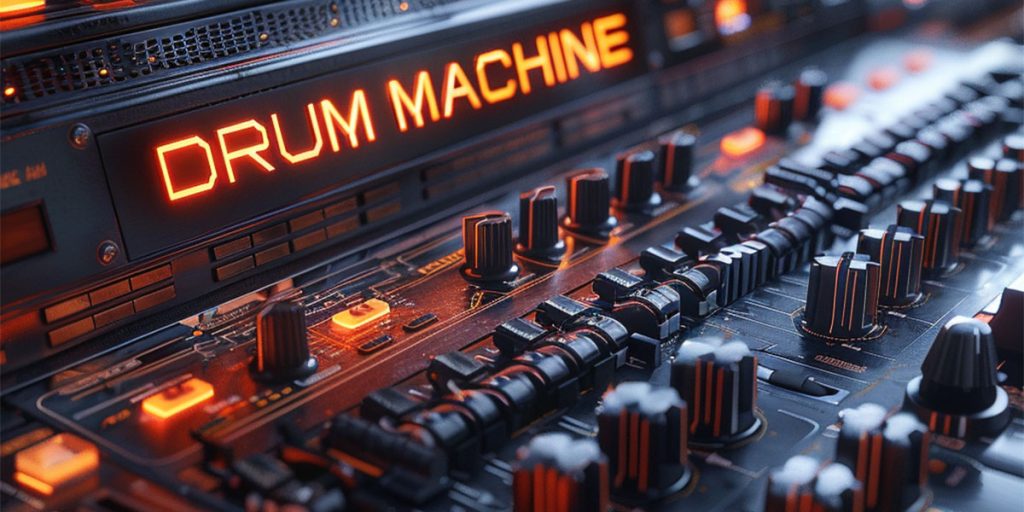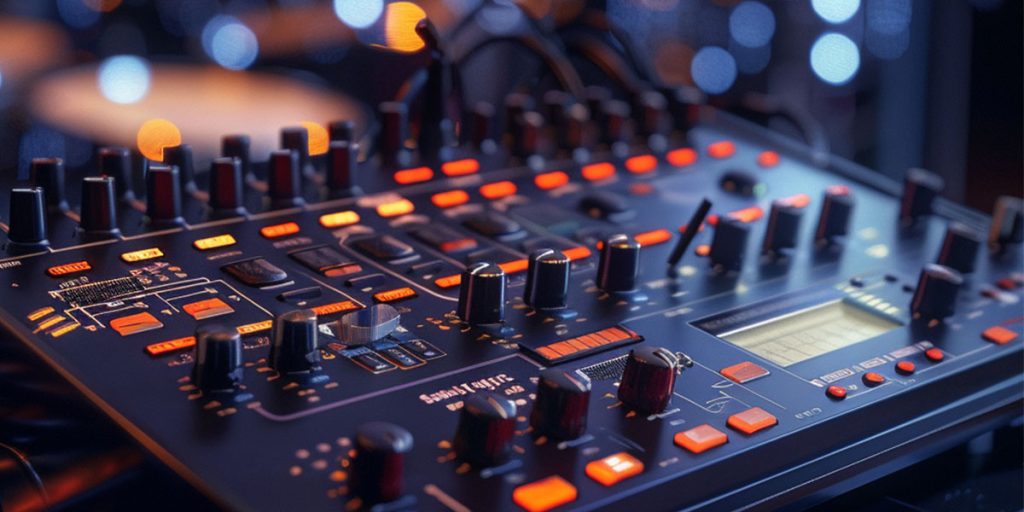
A drum machine is an electronic musical instrument designed to simulate the sound of drums, cymbals, other percussion instruments, and sometimes bass lines.
Typically used in a variety of music genres, from pop and rock to electronic and hip-hop, drum machines are a staple in modern music production for both amateurs and professionals alike.
Definition and Basic Operation
A drum machine lets users program rhythms and beats without live drums. You can choose specific drum sounds and sequence them into patterns. These patterns play back in loops, creating a rhythmic foundation for songs.
Drum machines typically have a grid-like interface; each column represents a sound, and each row marks a point in time. By activating cells in this grid, you can compose patterns. Modern drum machines also offer features like tempo control, volume adjustments, and tone modulation to refine the sound.
Types of Drum Machines
Drum machines can be broadly categorized into three types:
- Analog Drum Machines: These generate sounds using analog synthesis. Each drum sound in an analog drum machine is created by electrical circuits that mimic the respective drum sound, offering a warm and rich tone. Classic examples include the Roland TR-808 and TR-909, machines which have defined genres such as techno, hip-hop, and dance music.
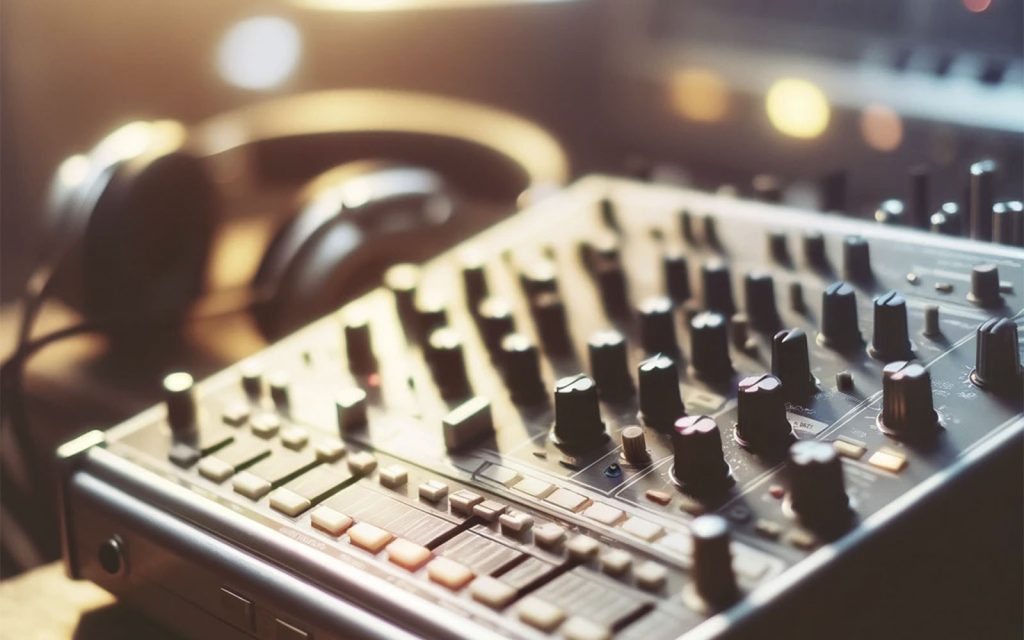
2. Digital Drum Machines: Unlike their analog counterparts, digital drum machines use samples or synthesized sounds that can be highly edited and manipulated. This type gives users a broader palette of sounds to choose from, which can emulate real drum kits or produce entirely new sounds. Popular models include the Alesis SR-16 and the Roland TR-8S, which provide extensive flexibility and integration capabilities.
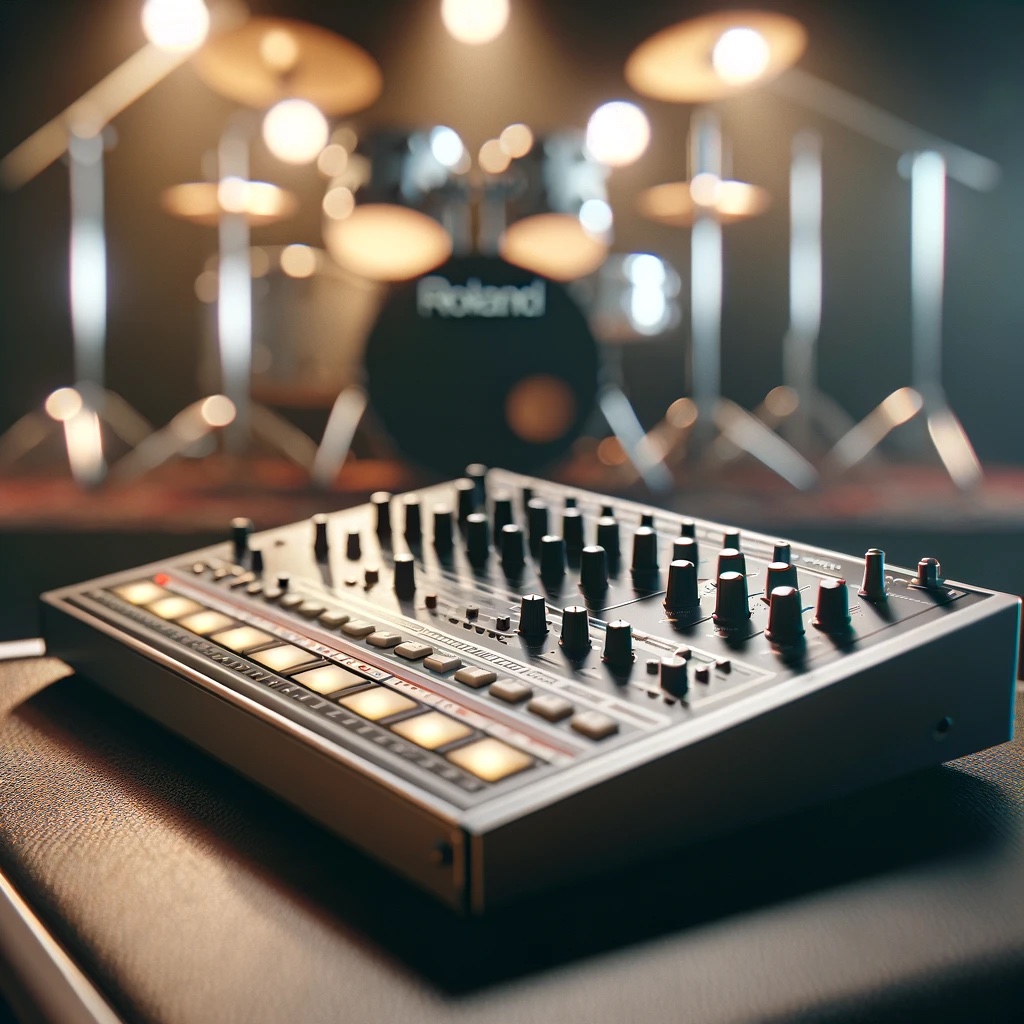
3. Software-Based Drum Machines: As technology has advanced, software versions of drum machines have become prevalent. These programs run on computers or tablets and emulate the functionality of hardware drum machines, often offering additional features such as advanced sound libraries, integration with digital audio workstations, and unlimited track and pattern storage. Software solutions are typically more portable and cost-effective than their hardware counterparts.
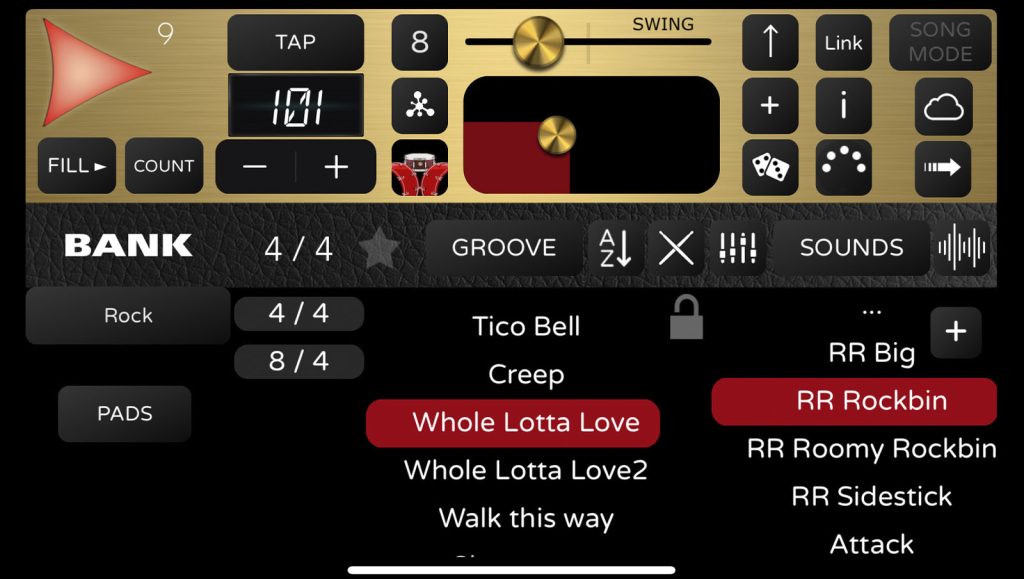
Advantages of Using Drum Machines in Music Production
- Consistency and Precision: Drum machines provide perfect timing, essential for professional-quality music production. They eliminate the human error element in timing, ensuring that the beat remains consistent throughout a performance or recording.
- Creativity and Flexibility: With the ability to store multiple patterns and change them on the fly, drum machines allow for high levels of creativity and experimentation. Producers can tweak sounds during live performances or studio sessions, making it easier to refine and alter music in real-time.
- Cost-Effective: For many artists, especially those just starting, acquiring and maintaining a full drum kit can be costly. Drum machines offer a more budget-friendly alternative that still provides a wide range of percussion sounds.
- Space-Saving and Portable: Drum machines take up far less space than traditional drum kits and are easier to transport, making them ideal for small home studios or musicians on the go.
- Ease of Use: Many drum machines are user-friendly, making them accessible to musicians of all skill levels. They can be a great tool for learning about rhythm, composition, and music production.
